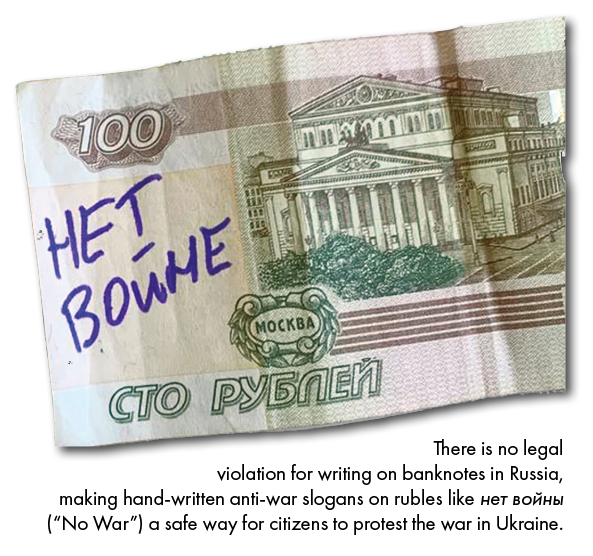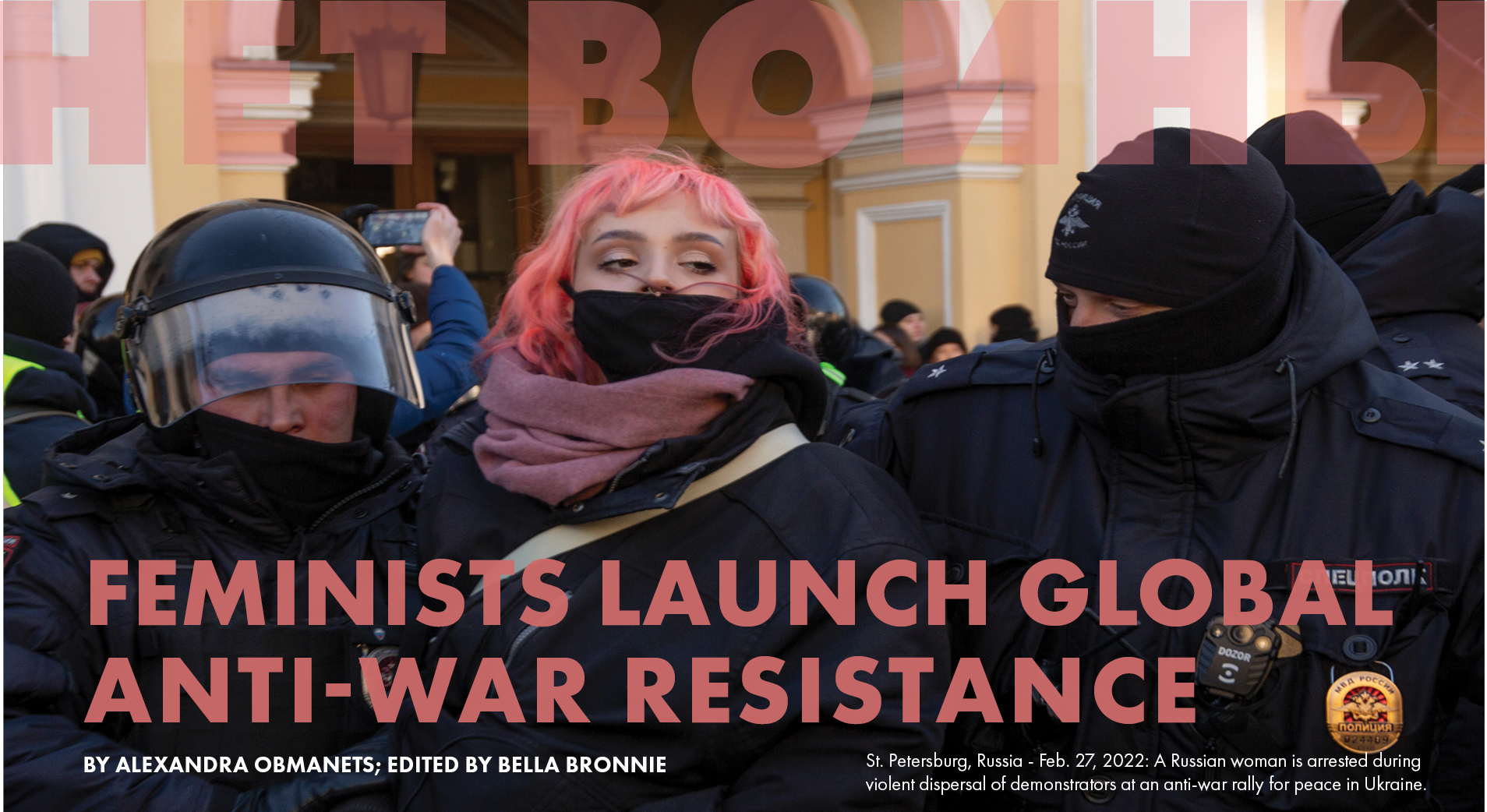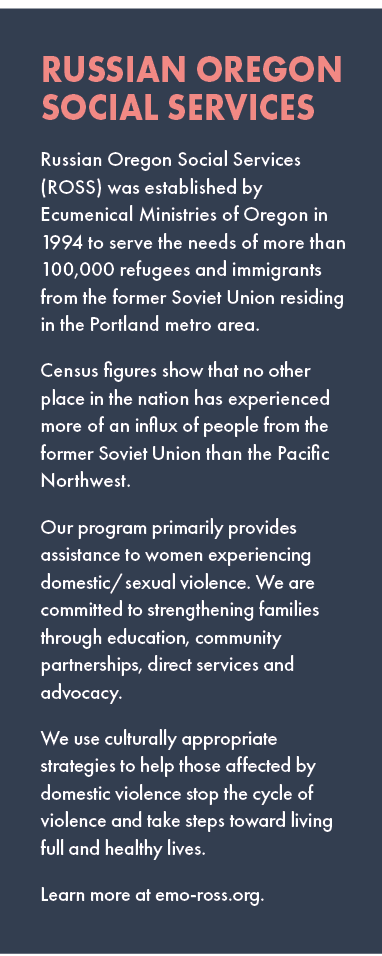In response to the Russian invasion of Ukraine on Feb. 24, 2022, feminist activists in Russia organized the Feminist Anti-War Resistance—a decentralized grassroots movement. Participants choose their own protest strategies, posting information via Telegram Messenger. In the first month, the Feminist Anti-War Resistance Telegram channel gained more than 25,000 followers.
Protest in Russia is often covert. Protesters write anti-war slogans on paper money, post stickers on bus stops, decorate clothing with pacifist and Ukrainian national symbols, and post fliers that resemble missing persons posters.

Why does this protest have to be clandestine? Since the beginning of the war, Russian legislation has created new measures to fight “disinformation” about the actions of the Russian army. According to the new Russian regulations, Russian aggression cannot be called “war on Ukraine” but rather a “special military operation.” Any attempt to stand against war actions has become criminalized: a perpetrator may be jailed up to 15 years for online or offline anti-war activities.
In-person protests in Russia earlier this year resulted in thousands of arrests. Russian independent media followed the protests, highlighting the large number of young women taking part in rallies and marches and being arrested. On March 8 (International Women’s Day), Russian supporters of the Feminist Anti-War Resistance protested in 94 cities. They wore black as a sign of mourning, handed out flowers, organized public performances on the streets and read poetry.
Outside of Russia, the movement has spread to dozens of countries around the globe, including the United States. Immigrant and non-immigrant supporters of the Feminist Anti-War Resistance have organized their own protests or joined existing protests in support of Ukraine in New York, Michigan, North Carolina, California and Oregon. Protests outside Russia tend to be larger because they don’t pose risks to demonstrators.
In Russia—following toughening legislation, closure of independent media and open threats—many activists, feminists included, fled the country in March and April to join anti-war efforts abroad, particularly in Georgia, Armenia and Turkey.
The Feminist Anti-War Resistance remains one of the few organized anti-war movements in Russia, with members continuing to protest even after arrests and trials. The Resistance is openly supported by prominent professionals, politicians and women’s rights activists around the world—among them Keeanga-Yamahtta Taylor, Zillah R. Eisenstein
and Nancy Fraser in the United States.
To view the manifesto and join the movement, go to feministsagainstwar.org. ▪
Alexandra Obmanets is an outreach coordinator for EMO’s Russian Oregon Social Services;
Bella Bronnie is a volunteer for the program.





